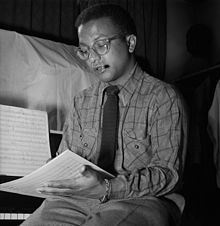Scott Timberg's Blog, page 2
October 31, 2018
Alexander Calder in Los Angeles
RAISED at a time when Europe was still the center of the art world, and coming of age as New York was beginning to replace it, the sculptor Alexander Calder can seem about as “East Coast” as a strand of ivy on a stone chimney. But he spent three crucial early years in Pasadena, where his parents ran with artists in the Arroyo scene and in Los Angeles. (This was before Hollywood existed, and before the car and other things would make LA a huge city 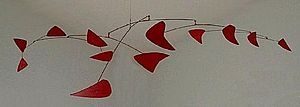 — Pasadena was still in some ways the intellectual and cultural capital of the Southland.)
— Pasadena was still in some ways the intellectual and cultural capital of the Southland.)
My new story for Los Angeles magazine’s website — here — looks at the great sculptor’s brief but formative time here. The piece is spurred by a just-opened exhibit at the Hauser & Wirth gallery in downtown Los Angeles.
Did not have room to discuss the fact that despite the fact that Calder’s work is much easier to see on the East Coast (where I used to see it as a kid at the National Gallery) and Europe, the LA Co Museum of Art commissioned an important and idiosyncratic piece for its opening on Wilshire, and Calder did a wonderful poster for the opening.
Most of my story comes from a conversation with longtime art critic Jed Perl, whose work I’ve followed for years. Even as a fan, I was knocked out by how good his new Calder bio is — Calder: The Conquest of Time, which runs through 1940, is insightfully written and exquisitely illustrated. Very eager to see the second and final installment. One of the many pleasant surprises — though it makes perfect sense — in volume one is that Calder was friends with Malcolm Cowley, author of the Lost Generation chronicle Exile’s Return, and one of my literary heroes.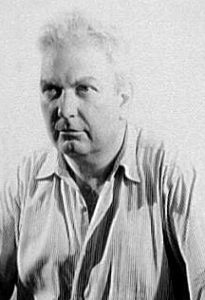
October 25, 2018
Rachael Worby and MUSE/IQUE
OVER the years I’ve attended several musical events put on by Rachael Worby, a human dynamo who has operated several series in and around Pasadena. Worby — who was once, I think, the First Lady of West Virginia — seems interested in something both populist and unorthodox, and the new season of her series MUSE/IQUE launches this weekend.
What follows is our recent correspondence.
We’re getting close to the opening of the fall season of MUSE/IQUE. This is an unconventional series in some ways, with its mix of genres and often, a variety of locations. What does MUSE/IQUE aim to do?
Everything we do is centered on our belief that all human beings deserve the opportunity to have their imaginations and understanding expanded through live music.
We imagine (and we encourage our community to imagine) the whole city as our venue, and we combine music, movement, and ideas from a diverse range of genres. These unconventional methods are carefully chosen to make the experiences highly energetic and accessible. Each event has new concept with a unique layout and an unexpected setlist. Even the most frequent of MUSE/IQUE guests does not know exactly how the evening will progress. The sense of exploration and discovery is palpable, and it works as a great equalizer that tears down insecurities about not knowing what to do – insecurities that I have found to be one of the most common barriers for many who are new to live performances. Whether you have a deep knowledge of music and the arts, or you have never been to a fine arts experience, you will walk away feeling empowered and love yourself and the world around you more.
I am excited to share our upcoming series, five events exploring the unstoppable, incomparable power of songs sung together. Most of us are bred from childhood to sing. It is a talent that comes from sitting on the lap of someone singing and hearing the harmonic intervals by putting your little head against that person’s rib cage and feeling the music seep into you. That feeling of connection never leaves us. This upcoming year we want to bring everyone closer using everything from the ditties we sing in our cars to crazy, wild, expressive experimentation to the twinkling, twinkling wonder of songs about space.
What was your early exposure to music and culture, and why did it end up mattering so much to you?
I grew up in a home filled to the brim with music: everything from Mozart, Paul Simon, Ella Fitzgerald, the Beatles, Thelonious Monk, and so many others. My father had a voracious love that he shared with all of us. I was captivated. My mother wisely nurtured that passion with discipline. When I was five years old, I began piano lessons, and my mother made sure I practiced every day.
In the most natural way, I experienced the power of music. For me, it transformed from a beautiful, everyday household element to an instrument of expression, storytelling, and activism.
And, of course, there’s my first crush, Leonard Bernstein…
Your summer season included an event dedicated to Leonard Bernstein, whose centenary this is; he’s important for your own biography and worldview, I think. Give us a sense of why he matters to you, and to the world of culture in general.
My life’s purpose was defined at eight years old when I attended a Young People’s Concert at Carnegie Hall for the first time and experienced the marvel of Leonard Bernstein. He was young, articulate, funny, and brilliant. At that moment, I decided that I, too, would strive to expand imagination and understanding through music. That resolve only strengthened when I saw him apply those talents in his activism.
Bernstein was an educator who celebrated the unlimited capacity in all of us as well as a counter-revolutionary whose talent was cloaked in kindness and generosity. His accessibility is his greatest gift to us.
You’ve lived and worked in several parts of the country. How does Southern California in general and Pasadena and specific compare to other regions, in terms of its artistic community, audience taste, and climate for funding/philanthropy? Is there something you’d like to see more of here?
I feel thrilled to call this beautiful city my home. We often refer to it as a “hub” for the arts because there is both a supply and great demand for everything from classical to more experimental work. Live music is thriving across the San Gabriel Valley and Los Angeles from the Cal State LA Luckman Theater to Downtown LA’s Colburn School to the newly-built art space at Arcadia High School. That does not even begin to cover the Music Center (including Disney Hall and the Dorothy Chandler) or the Ambassador Auditorium or the young artists coming out of USC.
Audience expectations are certainly very high, but I have found that is usually the case everywhere I go!
Other metropolitan areas such as New York and even Minneapolis rank much higher than Los Angeles when comparing the amount of contributed revenue their nonprofit arts and cultural organizations receive. I would love for Los Angeles to further develop that level of dynamic fundraising among our citizens and corporations.
Can you pick an event or two – not the whole season, please – coming up and tell us why we should look forward to it?
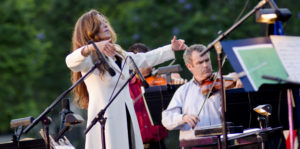
Photo by Ben Gibbs
Our upcoming series explores the unstoppable power of songs, and we begin this fall with two very different events CAR/TUNES on October 28 and SINGING/STORIES on December 2. We love our cars – especially here in Los Angeles – and there is no limit to the inspiration they have provided for many a songwriter. Think about the first time you bought a car for yourself. Whether it was a shiny, luxurious sports car or a secondhand clunker, at that moment, you were dreaming of the places you would visit and all the possibilities now that you had this car. In CAR/TUNES, we will remember and reignite our hopes and dreams.
By contrast, SINGING/STORIES is a more personal journey about storytelling. Music has a special power to fill in a story and add depth to it. MUSE/IQUE’s blending of genres and artistic styles will tell our collective story through many different varied perspectives.
You’ve said that the arts are a civil right. Why are they so important?
The arts are oxygen for the imagination. If you can imagine a world different from your own, you develop your ambition – the drive to reach for goals perhaps beyond that of your current circumstances – and empathy – the ability to comprehend people who may be different from you. These two qualities combined define what humanity should be. By investing in the arts, we empower our citizens to change the world for the better.
October 3, 2018
The Belated Emergence of Billy Strayhorn
ONE of the great hidden figures in musical history is Billy Strayhorn, who seems to be a bit less invisible every year. When I was getting hard into jazz in the early ’90s, haunting record stores and hoarding Coltrane and Mingus records right after college, Joe Henderson’s Lush Life album came out and electrified the jazz world: One of the greatest saxophonists of the ’60s was re-emerging with a tribute to an Ellington confrere I may not have even heard of at that point,
That record, and the David Hadju biography — as well as digging into great Strayhorn numbers like Blood Count and Day Dream (so hauntingly covered by Chet Baker near the end of his life) — made clear to me and others that the Duke’s arranger (gay, introverted, modest) was a serious figure of his own.
We’re now a few decades into the Strayhorn revival, and we’re now about to get a new theater/dance piece, based on the artist’s life and work, at REDCAT/ Disney Hall. I enjoyed meeting David Rousseve, the choreographer behind Halfway To Dawn ; he comes from Louisiana Creoles,was raised mostly in Houston, broke in as an artist in the ’80s East Village, and had a lot to say about the way culture, ethnicity, and artistic scenes work.
In any case here is my Los Angeles Times piece on Strayhorn and Halfway To Dawn.
September 28, 2018
The Poetry of Leonard Cohen
HE was born before Elvis, had his songs covered by everyone from Judy Collins to the Pixies, and managed five decades of brilliant work in a field that tends to see only bright flares. Leonard Cohen is known as a more-or-less rock musician to most of us, but he started out as a poet, publishing books for a decade before his debut LP.
The other day I met Cohen’s son, Adam, to discuss his father’s posthumous book of poetry and lyrics, The Flame, which comes out next week. There is a LOT of good work in here and it reminded me of Cohen’s genius and many contradictions. In any case, HERE is my story in the Guardian.
is my story in the Guardian.
September 17, 2018
Ten Years After: Remembering The Recession
A GREAT number of Americans have “moved on.” Their lives are fine, and the Great Recession is just a bad, dimly recalled memory, like a really bad winter flu from years ago. But for a number of us, it was one of the defining events of our lives — something whose consequences we deal with every day or every week. Over the last few days, the press has run a number of strong pieces about the crash of late 2008 — the Lehman Brothers collapse being the news peg for many of them.
Because I’ve argued, here and in my book Culture Crash, that the recession had enormous consequences for the arts, the people who make and disseminate them, and the middle class needed to sustain the whole system, I’ll try to highlight the best of these as they appear.
Most visibly, The New York Times devoted its Sunday Business section to the 10th anniversary of the Lehman mess, with an emphasis on “What We Lost” and “What We Learned.” (The paper also ran a page that listed the guilty bank executives who served time — a blank page.) The first of the pieces, about the way the recovering helped decimate an already ailing middle class, is essential reading. The whole package (and I’m still working through it) strikes me as an example of the best of what journalism can do.
Another Times piece is so powerful I could barely stand to read it all the way through. Penned by a youngish editor at the paper’s style magazine, the story describes MH Miller graduating from NYU soon after the recession hit. He left school with an enormous amount of student debt; his parents had been slammed by the collapse and worried about holding onto the house they had refinanced to pay for their son’s education. I won’t summarize it any further; the piece — titled “I Came of Age During the 2008 Financial Crisis. I’m Still Angry About It.” — is a must-read.
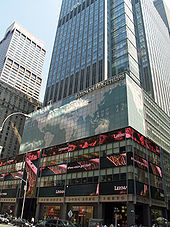
Lehman Bros, before the 2008 crash
Miller also published a lengthy piece about student debt in general — his own and his generation’s — in the Baffler, reprinted in the Guardian. Here it is: another read-and-weep piece about how poorly the U.S. has adjusted to the ravages of free-market capitalism, which nearly stopped circulating 10 years ago. And then, when it go up and running again, it began to take a lot of us down, for years to come.
September 14, 2018
The Return of Jeffrey Deitch
AS recently as a few years back, it would have been hard to predict that controversial art dealer Jeffrey Deitch would have any reason to come back to Los Angeles for anything more complicated than a French Dip at Cole’s. But now the man pushed out of the Museum of Contemporary Art — and for a while, synonymous with faux-sensational, shallow Warholism — is one his way back. Near the end of the month, the Jeffrey Deitch gallery opens in Hollywood, and it looks to be more substantial than Deitch doubters would have guessed. (The opening show is dedicated to Ai Weiwei.)
I’m curious to see what this Deitch — a divisive figure but a talented showman — does with the space. My brief Los Angeles magazine story is here. 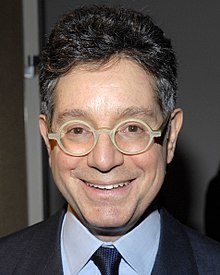
September 4, 2018
The Strange Death of the Alternative Press
FOR the last few months I’ve been meaning to revisit some of the abiding concerns of this blog and the book that inspired it. Mostly, I’m talking about what we used to call the press and now typically describe as the news media. My overall sense is that some parts of the creative economy have healed since I began writing my book in the teeth of the recession and published it in 2015. But the press — not just the daily press but the alternative weeklies that I began reading as a teenager and then writing for in my 20s — have not much recovered.
This slow decline (which I wrote about five years ago, after the shuttering of the Boston Phoenix) reached a startling point a few days ago, with what seems like the final death of the Village Voice and the instant layoff of most of its staff. (Those left will, apparently, only be there to digitize past content.) The news h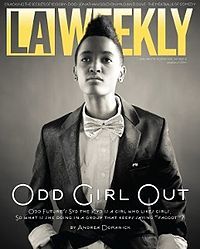 as now been reported quite widely, with this remembrance by the New Yorker’s art critic Peter Schjeldahl — a three-time Voice scribe — probably my favorite. (The LA Weekly, a once-excellent paper bought a year ago by a group of Orange County Libertarians with shaky credentials and a cagey relationship to the truth, may be headed for a similar collapse due to a tidal wave of conflict of interest and at least one lawsuit between the news owners.)
as now been reported quite widely, with this remembrance by the New Yorker’s art critic Peter Schjeldahl — a three-time Voice scribe — probably my favorite. (The LA Weekly, a once-excellent paper bought a year ago by a group of Orange County Libertarians with shaky credentials and a cagey relationship to the truth, may be headed for a similar collapse due to a tidal wave of conflict of interest and at least one lawsuit between the news owners.)
But perhaps the most complete piece yet on the alt-press meltdown just appeared on the personal blog of a writer and editor many miles from New York City. Its author, North Carolina-based Mark Kemp, is known to music journalists and attentive readers for various stints, including running the magazine Option during indie rock’s early ’90s heyday, a brief tenure at Rolling Stone, and recent leadership positions at Acoustic Guitar magazine and the Creative Loafing chain of Southern alt weeklies. (I barely know the guy, but have respected his work for a long time.)
In any case, Kemp has posted a wide-ranging piece on his blog that all interested parties should know about. It kicks off this way:
WHEN I WAS laid off from my job as editor-in-chief of the North Carolina alt-weekly Creative Loafing Charlotte in 2013, my staff had just wrapped up an exciting and productive political season culminating in CL‘s coverage of the 2012 Democratic National Convention in our hometown. The layoff surprised me. It was the first time I had been canned after doing great work. In previous years, working hard and producing engaging journalism had led to promotions or better positions at other companies.
From here he gets into the demise of the Voice, the larger forces at work, a few bright spots in the media ecology, and his hopes for the future.
At times I think Kemp is being overly optimistic, but for a guy who’s been though a number of ups and downs, whatever optimism he’s emerged with is hard-won and deserves to be heard. In any case, please read his piece, and understand that despite our president’s crowing about a raging economy — which is indeed quite strong in some quarters, and especially comfortable for rich folks who own real estate or a lot of company stocks — the rising tide has not lifted all boats. Does it matter to the rest of the world? I’ve had my say on the matter and will leave it to the above pieces to make that case. Meanwhile, I thank Kemp for a well-argued piece.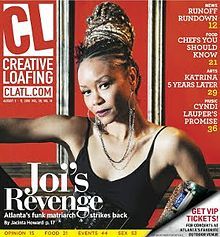
August 31, 2018
Reading With Aimee Mann
LAST week I took a wild guess and approached singer/songwriter Aimee Mann for my musicians-on-writing column, All the Poets. As a longtime fan I had a vague sense that she was literary — whatever that means — but could not recall a specific reference to a novel or poem in any of her songs. Nor had we talked about books of any kind across the several interviews we’d done over the years.
I’m pleased to say that Mann was not only game to discuss her love of reading, which goes back to early childhood, but ended up being one of my most engaged and unpredictable subjects yet. She also turned out to be a huge F. Scott Fitzgerald fan, a lover of psychology, and to have an interest in several unfashionable writers whose names I rarely hear.
 Our conversation just went up this morning on the Los Angeles Review of Books site, here.
Our conversation just went up this morning on the Los Angeles Review of Books site, here.
And I’ll be at the Greek Theater tonight to see Mann open for Jason Isbell.
August 29, 2018
Guest Columnist: Empty Room at the Top
Here is the latest piece by CultureCrash’s regular guest columnist, Lawrence Christon. Christopher O’Riley, of course, is best known to some of us for his classical-piano interpretations of Radiohead, Nick Drake and Elliott Smith.
EMPTY ROOM AT THE TOP
By Lawrence Christon
For years it’s been routine, whenever possible, for me to make a six-o’clock Sunday night radio stop at National Public Radio’s From the Top before moving on to watch 60 Minutes’ rigorously depressing reports on the endless variety of swindlers, embezzlers, dictatorial murderers, international racketeers and other notable swine whose betrayal of people who trusted them reaches epic numbers.
From the Top, which has been on the air since 1999, has been a reliably bracing aperitif for what follows. It consists of musically gifted kids age eight to eighteen performing some of the greatest classical music ever written. The show, with its detoxifying ambience of innocence and hope, airs to an estimated half-million listeners from big and little cities all over the U.S., which nicely breaks the bicoastal hegemony over American culture. It’s awarded more than $2.4 million in scholarships through the Jack Kent Cooke Young Artist Award program and has won two Emmys. And for virtually all of that time Christopher O’Riley has been host.
It’s hard to come up with a more perfect fit between personality and format. O’Riley himself is an astonishingly gifted classical pianist, with a deep musical intelligence and pellucid touch that effortlessly adapts to the character of whatever piece he’s playing, whether it’s Berlioz or Mozart—or Radiohead. He seems to embody the Bill Evans’ (whom he admires) precept, “To play well, you have to listen well.”
At 62, he’s still light enough in voice and demeanor to engage the kids on a level that puts them in total comfort. They trust him as an adult and open up to him as a confidant (a lengthy pre-concert audition and interview process, which can take weeks, plus a dress rehearsal, help put them at ease). His manner is fond, gently cajoling, encouraging, interested and respectful—there’s nothing icky or exploitive in the way he gets kids to talk about their lives and music. And they do it in the most charming, funny and touching ways. Where necessary, his role as trusted guide includes sitting down at the piano to accompany his young soloist in fulfilling the show’s unofficial credo: If you didn’t know, you couldn’t tell that a kid is playing this stuff.
Guess what? O’Riley has been fired from the show.

O’Riley with violinist Alice Ivy-Pemberton on From The Top
Well, not fired exactly. Let’s put it this way: they made him an offer he had to refuse.
(Before we continue, let me hasten to add, in our scandal-plagued era where everyone is presumed innocent until accused in a media headline, the all-purpose phrase “hint of impropriety” does not apply, nor has it been suggested by anyone connected with the show.)
What happened? The deadly coils of PR corporate-speak that surround the decision make it almost impossible to pinpoint exactly what caused the fallout, but generally speaking, when a couple of long-term board members stepped down in 2016, the organization announced its desire to broaden FTT’s audience base, expand its media platforms and diversify the kinds of music the kids would play. “To bring it into the 21st century,” the statement read, as though the 21st century were terra incognita, cut off from anything leading up to it.
A professional arts management firm was hired to appoint a search team to find a new executive director. That turned out to be Gretchen Neilsen, who earned good repute heading the educational component of the Los Angeles Philharmonic and running the Youth Orchestra of Los Angeles with the approval of L.A. Phil’s conductor, Gustavo Dudamel.
At first, everyone made the right noises. “The board is beyond thrilled to have recruited Gretchen as our next leader.” And, “I am thrilled to bring all my learning, experience and passion to an organization I have long admired,’ said Neilsen.”
Even O’Riley was on board: “I look forward to working with Gretchen…and to empower the next generation of great young performers who will define the future.”
What happened between then and July 12 2018, when the realization of irreconcilable differences became unarguable fact, we’ll probably never know. And in truth, too few care. In the endless swirl of entertainment gossip, any item about a pubic radio classical music program short of gunfire in a broadcast booth would scarcely raise an eyebrow.
The deeper story here may concern an anxiety over the general perception of classical music itself, with its presumptions about dead white males, opulent concert halls, ponderous, esoteric music and plutocratic disdain for the average Joe. (In a partial challenge to that that misperception, O’Riley has mentioned how young musicians have to deal with performance anxiety, family troubles, sexual identity and social isolation problems, just like everybody else.)
If classical music in its infinite variety, scope and range of expression is no longer seen as one of the high achievements of civilization and in fact has been used by municipalities to disperse groups of kids hanging out on street corners, then we’ve dropped a notch or two back into barbarism.
From the Top ’s administration wants to reassure us that its core program will remain intact, and famous musical figures and alumnae will form a permanent rondo of guest hosts.
“We’re about classically trained musicians, but they often branch out into other forms of music,” Neilsen told me.
“Audiences today are media-savvy,” she added. “We want to reach out into social media, YouTube, virtual reality formats, video games. We want to create a format where youth speaks to youth. This is about everybody.”
The truth is however that FTT doesn’t know exactly what it wants to do or how it’s going to do it. And clearly they don’t know what the art of the interview consists of and what intangibles O’Riley has brought in the tender levity of his conversations with FTT kids, the impeccable musicianship which made him their ideal dance partner, and the unique tone he contributed to help define the show.
From the Top will move its headquarters from Boston to L.A. to become, as Neilsen put it, “an education center,” which should change its focus. It may indeed become something entirely new and go on to an expanded freshness that will draw new audiences and wider popular enthusiasm (I may be of a minority opinion that it’s a niche show that’s wonderful the way it is).
Or it may degenerate into the banality of over-earnestness that characterizes so much of public television and radio. But in 2020, when O’Riley’s voice leaves the show for the last time, “From the Top” will have dispatched its smartly companionable guide, and with him, its identity.
Neilsen implied that she was not happy with this development.
“It’s a real loss,” she said.
We’ll see in time how critical that loss will be.
August 26, 2018
Indie Publishing With Hat & Beard
ONE of the things I’m most interested is how non-corporate, non-mainstream culture can survive after the 2008 crash. My conversations with J.C. Gabel — the intense, passionate publisher of a small LA press called Hat & Beard — give us all a glimpse of both the challenges to independent culture merchants as well as the possibilities.
Hat & Beard is about to take a step forward with more output, a new way of doing business, and a new cultural space which will help showcase its books and its artists. The quality of their books is very high; I’m especially looking forward to a new one, just now going to press, about the short career of the band The Velvet Underground, which accompanies an exhibit that moves in a few weeks from Paris to New York.
In any case, my LA Times story on the press is here.
Scott Timberg's Blog
- Scott Timberg's profile
- 7 followers


